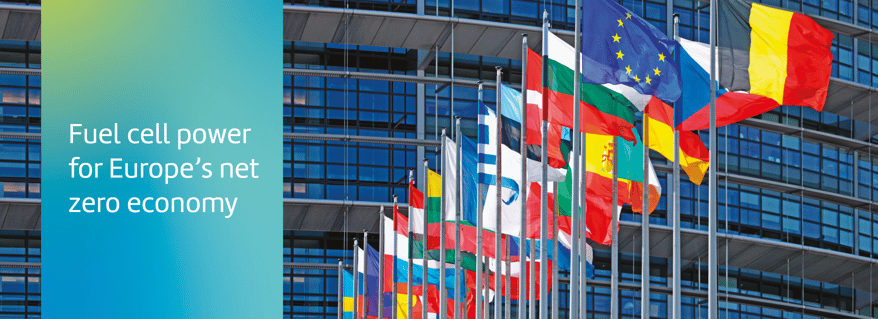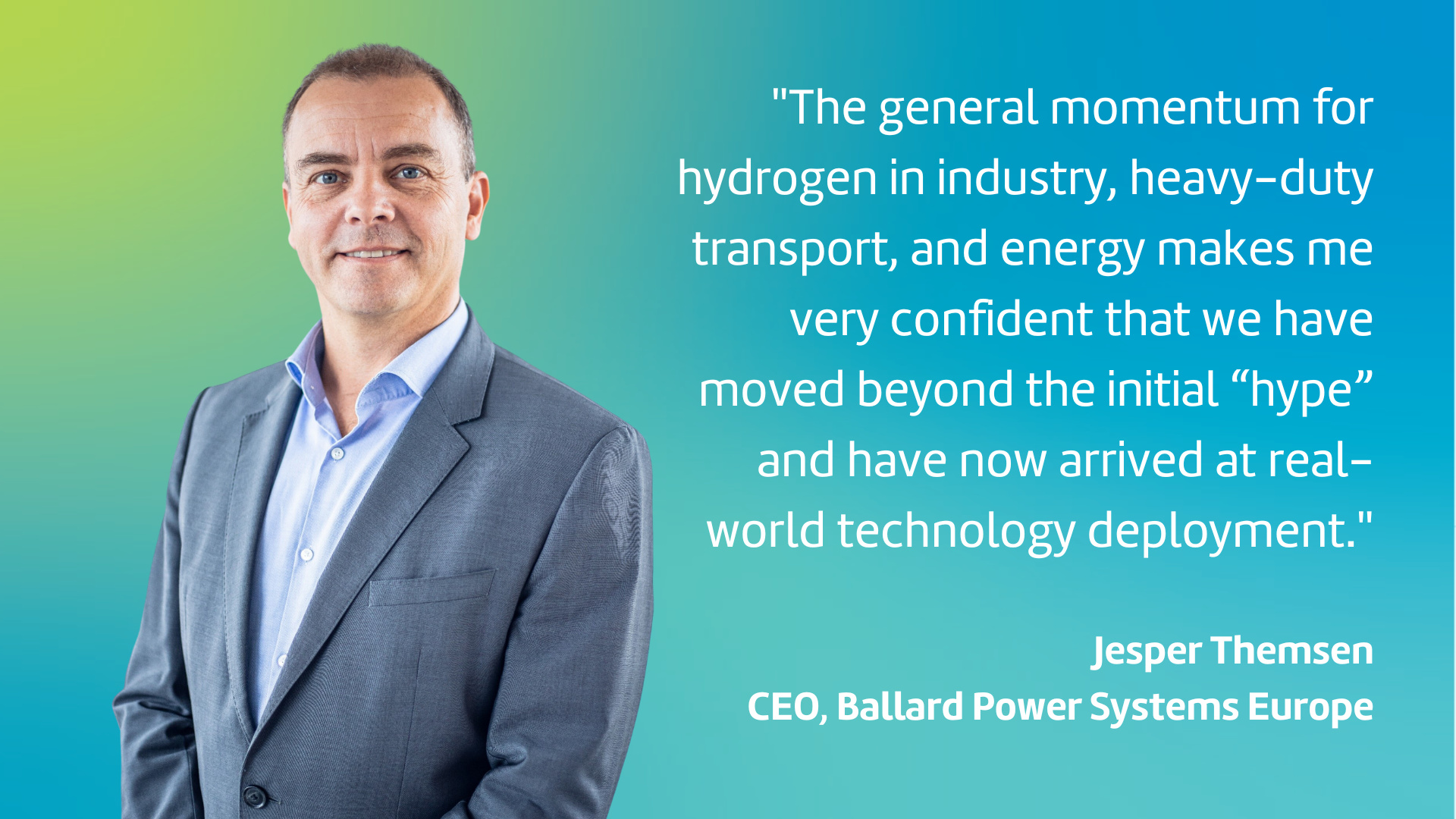
The global climate crisis, concerns over energy security, and a worldwide rush to capitalise on clean tech have led to an unprecedented industry situation where hydrogen and fuel cells are now primed to take center stage as a zero-emission solution.
When it comes to policy and legislation, negotiations on the European “Fit-for-55” package will culminate shortly – bringing more regulatory clarity and predictability to the industry.

As the CEO of Ballard Power Systems Europe, Jesper Themsen has through more than 20 years in the industry experienced first-hand the evolution of fuel cells from a niche market application to emerge as one of the most promising zero-emission technologies.
Themsen and his team have successfully developed and implemented fuel cell solutions for heavy-duty mobility, marine and stationary power applications. Here, he discusses the role and impact of EU policies on hydrogen and fuel cell industry development.
Ballard has experienced rapid growth in Europe over the past five years. What have been the main drivers?
There are three mutually reinforcing trends that have helped us over the last few years: technology maturity, public policy, and corporate accountability in ESG activities.
On the technology side, we are moving from providing tailor-made solutions to selling commercial products to potential customers and OEMs.
On the policy side, European and national initiatives to decarbonize transport and energy - for example, CO₂ prices and emission standards - are boosting interest and demand for Ballard’s products.
On the corporate side, public pressure for companies to become more environmentally friendly is also a strong driver for Ballard’s fuel cell systems.
Combined, these trends have led us to increase our manufacturing capacity three-fold and our headcount twenty-fold in Europe in the last five years.
Hydrogen and fuel cell technologies have recently become more prominent as a net zero solution in Europe, gained support under the U.S. Inflation Reduction Act, and were included in China’s five-year development plan. What do you see as the reason for this upsurge?
Technology maturity has increased tremendously over the last decade. Fuel cells carry more energy, are more reliable and more durable. In our case, heavy-duty vehicles powered with Ballard fuel cells have travelled more than 150 million kilometers, to-date. We have moved past the demonstration phase and are heading at pace to large-scale commercial deployment.
As the zero-emission landscape has developed, so the entire value chain has grown stronger through collaboration - with the uptake of battery-electric vehicles helping us as we share many vehicle components.

Are the current European initiatives sufficient?
I think the EU and national governments have taken a very cautious approach to hydrogen. From 2018-2019, many countries published hydrogen strategies, identifying key sectors where hydrogen could support decarbonization. Then the industry entered a regulatory phase where a policy framework was crafted to boost hydrogen supply and demand in key sectors.
Now, we are entering the technology deployment stage where public funding support is key for the industry to scale-up and deliver faster than normal.
What can be improved?
Alignment between policies and support schemes should improve. To take a current example: with the Net Zero Industry Act, the European Commission is proposing to identify eight clean technologies – fuel cells and electrolyzers included – as “strategic net zero technologies”. This is positive.
However, the European Commission also recently proposed a “State Aid Temporary Crisis and Transition Framework”, allowing Member States to support investments in electrolyzer manufacturing – but not in fuel cell manufacturing. This type of inconsistency needs to be ironed out.
How do you view Europe’s role in combatting climate change and implementing hydrogen technologies? Do you see Europe as a potential leader?
Europe has been leading in terms of climate ambition for several years. The commitment to reaching carbon neutrality by 2050, the -55% emission target by 2030, and the related "Fit-for-55" package provide strong support for our industry. Having this comprehensive – if somewhat complex – package is positive and will support the large-scale deployment of zero-emission technologies.
Specifically, the hydrogen supply quotas under the Renewable Energy Directive, hydrogen refuelling stations deployment targets under the Alternative Fuels Infrastructure Regulation, and the extension of the EU Emission trading scheme to new sectors all support our sector.
However, the devil is in the detail and implementing these newly approved policies in a timely manner is key. So far, Europe is the region where the most hydrogen production projects have been announced, but only 5% of them have been committed. We need to turn this situation around and give enough confidence to project developers and investors for the remaining 95% to happen.
Europe still leads in this space today, but the position is being challenged by ambitious policies adopted in North America and China, and the strong policy and financial support given to clean technologies in these regions.